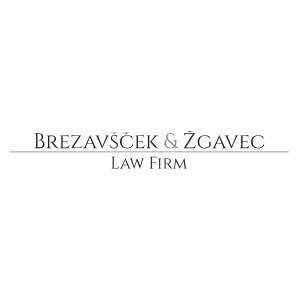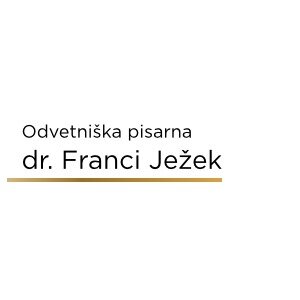Best Nonprofit & Charitable Organizations Lawyers in Ljubljana
Share your needs with us, get contacted by law firms.
Free. Takes 2 min.
List of the best lawyers in Ljubljana, Slovenia
About Nonprofit & Charitable Organizations Law in Ljubljana, Slovenia
Nonprofit and charitable organizations in Ljubljana, Slovenia play a crucial role in addressing various social, cultural, and environmental needs. These organizations are typically established for purposes other than generating profit and are essential in promoting volunteerism, social welfare, and community engagement. The legal framework governing these entities in Slovenia ensures they operate within defined boundaries and uphold transparency and accountability. Understanding this framework is vital for individuals looking to establish, manage, or engage with nonprofit and charitable organizations effectively.
Why You May Need a Lawyer
There are several scenarios where legal advice becomes necessary for those involved with nonprofit and charitable organizations in Ljubljana:
- Formation and Registration: Legal guidance is essential when forming a nonprofit to ensure compliance with Slovene laws and secure proper registration.
- Tax Compliance: Navigating tax obligations and exemptions can be complex, requiring expert advice to optimize benefits and ensure legality.
- Contractual Agreements: Legal professionals can assist in drafting contracts and agreements to protect the organization's interests.
- Dispute Resolution: Assistance may be needed in resolving internal disputes or conflicts with external parties.
- Governance and Compliance: Ongoing legal advice can help maintain compliance with local laws and regulations.
Local Laws Overview
In Ljubljana, Slovenia, nonprofit and charitable organizations are subject to several local laws that dictate their formation, operation, and regulation. Key aspects of these laws include:
- Registration Requirements: Organizations must register with the competent authority to gain legal status.
- Organizational Structure: Clear guidelines exist regarding governance, including the board of directors and general assembly responsibilities.
- Financial Reporting: Strict requirements for financial transparency and reporting must be met to retain nonprofit status.
- Taxation: Specific tax benefits are available for nonprofits, but they must adhere to the criteria set forth to qualify.
- Fundraising Regulations: Rules surrounding soliciting donations and managing funds must be followed.
Frequently Asked Questions
What is the process to establish a nonprofit organization in Ljubljana?
The process involves drafting a founding act, creating the organizational structure, and registering with the appropriate government agency. Legal assistance is recommended to ensure compliance.
Are there specific auditing requirements for charitable organizations in Slovenia?
Yes, nonprofits must adhere to auditing standards stipulated by Slovenian law, particularly if they exceed certain thresholds in revenue or expenditures.
How does a nonprofit qualify for tax exemptions?
To qualify for tax exemptions, nonprofits must meet criteria regarding their purpose and how their activities align with public benefit objectives.
Can foreign individuals serve on a Slovenian nonprofit board?
Yes, foreign nationals can serve on nonprofit boards, but they must comply with any local residency and regulatory requirements.
What are the reporting obligations for nonprofit organizations?
Nonprofits are required to prepare annual financial statements and activity reports, which must be filed with relevant authorities and made available to the public.
Is government funding available for nonprofits in Ljubljana?
Yes, various governmental grants and funding opportunities are available, focusing on projects that serve the public interest.
What legal structure should a nonprofit adopt?
The most common legal structure for nonprofits in Slovenia is the association, but foundations and institutes are also options depending on the organization's goals.
What regulations govern the fundraising activities of nonprofits?
Fundraising activities must comply with regulations to ensure transparency and accountability, including obtaining necessary licenses where applicable.
How can a nonprofit in Ljubljana engage in political activities?
Nonprofits are generally restricted from direct political campaigning, although they can engage in advocacy work related to their mission within certain limits.
Can a nonprofit be dissolved, and what is the process?
A nonprofit can be dissolved through voluntary dissolution by members or involuntarily if it fails to comply with legal obligations. The process involves settling debts and distributing any remaining assets as per the law.
Additional Resources
For further assistance, individuals can refer to the following resources:
- Ministry of Public Administration: Provides information on legal framework and registration processes.
- Association of Nongovernmental Organizations of Slovenia (CNVOS): Offers support and advisory services for NGOs.
- Slovenian Tax Authority (FURS): Provides guidance on tax-related issues for nonprofits.
- EU Funding Programs: Information on available funding for NGOs involved in European projects.
Next Steps
If you need legal assistance with nonprofit and charitable organizations in Ljubljana, consider the following steps:
- Consult a Lawyer: Seek out a lawyer specializing in nonprofit law to address your specific needs.
- Gather Information: Prepare documents and information relevant to your organization for your consultation.
- Explore Local Resources: Engage with local nonprofit networks and resources for guidance and support.
- Consider Workshops and Seminars: Attend educational events related to nonprofit management and legal compliance.
Lawzana helps you find the best lawyers and law firms in Ljubljana through a curated and pre-screened list of qualified legal professionals. Our platform offers rankings and detailed profiles of attorneys and law firms, allowing you to compare based on practice areas, including Nonprofit & Charitable Organizations, experience, and client feedback.
Each profile includes a description of the firm's areas of practice, client reviews, team members and partners, year of establishment, spoken languages, office locations, contact information, social media presence, and any published articles or resources. Most firms on our platform speak English and are experienced in both local and international legal matters.
Get a quote from top-rated law firms in Ljubljana, Slovenia — quickly, securely, and without unnecessary hassle.
Disclaimer:
The information provided on this page is for general informational purposes only and does not constitute legal advice. While we strive to ensure the accuracy and relevance of the content, legal information may change over time, and interpretations of the law can vary. You should always consult with a qualified legal professional for advice specific to your situation.
We disclaim all liability for actions taken or not taken based on the content of this page. If you believe any information is incorrect or outdated, please contact us, and we will review and update it where appropriate.

















